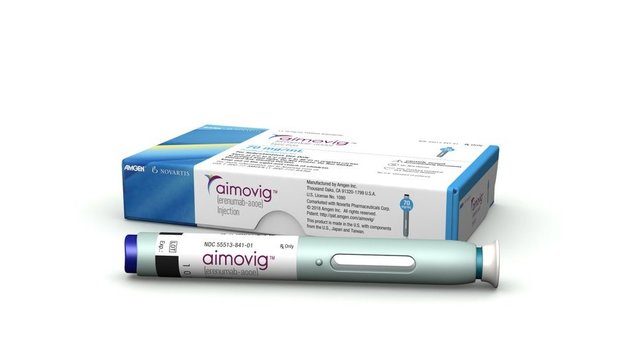
As biosimilars start to eat into sales of its blockbuster biologic drugs, Amgen needs new products to deliver growth – and it says migraine therapy Aimovig is off to a great start.
Chief executive Bob Bradway told investors on the company’s third-quarter results call that Aimovig (erenumab) is “shaping up to be one of the industry’s most successful recent launches” with sales reaching $22m in the quarter, ahead of analyst expectations.

Bob Bradway
“People suffering from migraine and their physicians have been waiting for years for an effective new therapy and they’ve reacted very well to Aimovig,” he said. The company estimates that more than 100,000 patients have taken the Novartis-partnered CGRP inhibitor since its launch in May as a once-monthly, self-injected preventive treatment for migraines.
The strong take-up has come despite approvals for rival CGRP inhibitors from Teva and Lilly, and Amgen says its first-mover advantage is backed up by a patient-friendly delivery device, as well as a willingness by healthcare payers to cover the product thanks to a price that encourages access.
The company is also making much of the fact that Aimovig is the only drug that targets the CGRP receptor rather than the CGRP protein itself, although for now there’s no strong evidence to suggest that confers a clinical advantage.
There’s no doubt that the rapid roll-out comes from pent-up demand for the drug among people with migraine who still suffer headaches despite other therapies. However Amgen’s commercial head Murdo Gordon said he believes “we’re scratching the surface of helping chronic migraine sufferers [and] we think that we’ll see continued demand growth.”
Overall, Amgen posted a 2% rise in revenues to $5.78bn in the quarter, despite pressure on older drugs like while blood cell booster Neulasta (pegfilgrastim) which showed the first signs of weakness from biosimilar competition after Mylan/Biocon launched their Fulphila rival in July. TNF inhibitor Enbrel (etanercept) also fell 5% in the face of competition from newer drugs in indications such as psoriasis.
There was also disappointing news once again for cholesterol drug Repatha (evolocumab) which rose 35% to $120m but missed expectations. Last week, Amgen reduced its price by 60% to $5,850 in a bid to kickstart sales growth and overcome payer resistance to the drug.
“This should substantially lower their out-of-pocket costs and lower the abandonment rate which is as high as 75%,” said Gordon, who said the cut was necessary to compete and would build much-needed volumes at the expense of near-term sales.
The Repatha discount comes as the US administration is ramping up the pressure on the biopharma industry on drug pricing, most recently proposing a reference pricing model to bring process closer into line with other affluent nations.
Commenting on the overall environment and how it looks likely to develop in 2019, Bradway said that the US has benefitted enormously from a market which allows patients to access new therapies “more quickly and more comprehensively than in other countries.”
“We think what’s required is more innovation, not less, and the system that enables people to get access to that innovation swiftly,” he suggested.




